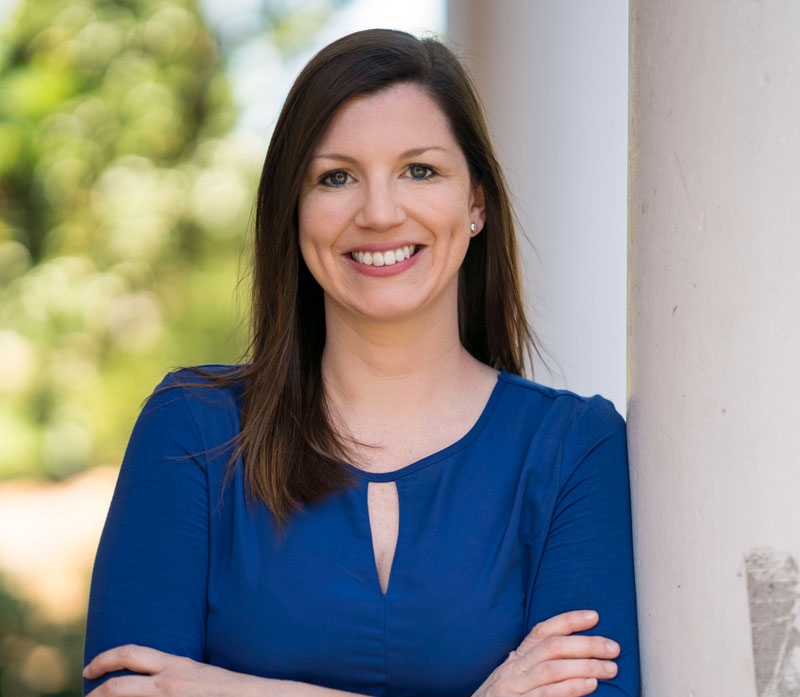USM’s Phillips Receives Fulbright Award to Conduct Research in Chile at University of Santiago USACH
Wed, 10/25/2023 - 10:17am | By: Ivonne Kawas

Dr. Nicole M. Phillips
A University of Southern Mississippi (USM) faculty member has received a prestigious Fulbright Specialist Program award to exchange knowledge and conduct research within biology education in Chile at the University of Santiago USACH.
Dr. Nicole M. Phillips, associate professor of biology in the School of Biological, Environmental and Earth Sciences, will complete a project at the University of Santiago USACH in Chile that aims to exchange knowledge and establish partnerships benefiting participants, institutions, and communities both in the U.S. and overseas through a variety of educational and training activities within biology education.
“One of my favorite aspects of research is developing projects that are only possible through collaborations across disciplines. For this project, we will combine my knowledge of shark population genetics, ecology, climate change, and conservation with USCH researchers’ expertise in bioinformatics, biochemistry, and evolution to pursue novel research that may not otherwise be possible working independently,” said Dr. Phillips. “We hope that this program will build a long-lasting collaborative relationship between USM and USCH, facilitating novel research opportunities and future exchanges between our institutions.”
Dr. Phillips is one of more than 400 U.S. citizens who share expertise with host institutions abroad through the Fulbright Specialist Program each year. Recipients of Fulbright Specialist awards are selected on the basis of academic and professional achievement, demonstrated leadership in their field, and their potential to foster long-term cooperation between institutions in the U.S. and abroad.
Dr. Phillips highlights that during this visit to USCH, faculty and graduate students, members of the university’s Laboratory of Genomics, Molecular Ecology and Evolutionary Studies, will share their current lines of research. Together, they will discuss conservation implications and potential impacts of climate change. She is scheduled to make the trip before year’s end.
“The main objective of the project is to transfer knowledge and skills to faculty and graduate students at USCH that will support the integration of molecular data into the conservation of marine species and ecosystems,” said Dr. Phillips. “I will also give seminars on my research, which focuses on using molecular tools to support conservation and management of aquatic species. Additionally, I will host a workshop to provide training on the use of environmental DNA (eDNA) technology to study species of conservation concern.”
Dr. Phillips’ research aims to address challenges in threatened species conservation through the application of novel and advanced molecular tools. It focuses on imperiled sharks and rays while also working across a diversity of aquatic fauna in freshwater and marine systems including fishes, turtles, amphibians, and mammals.
Most notably, during her career, Dr. Phillips has pioneered the use of historic DNA to in conservation genetic studies of highly threatened sawfishes and has developed an internationally recognized research program that leverages eDNA technology to study threatened marine species. At USM, her lab develops and uses novel eDNA tools to study the distribution, abundance, habitat use, seasonal migration patterns, and temporal declines in a wide range of taxa on a global scale.

USM's Dr. Nichole Phillips engaging in eDNA Training in Indonesia
Over the last five years, Dr. Phillips has also engaged in research and conservation activities on an international scale, including countries like Panama, the United Kingdom, Australia, and Indonesia. Additionally, she co-teaches a study abroad course on Tropical Ecology in Belize.
Dr. Phillips is committed to fostering the next generation of female scientists. A testament to this dedication is that Annmarie Fearing, a PhD student under her mentorship, has also been granted a prestigious Fulbright Scholarship to conduct sawfish research in Brazil in 2024.
“I am very passionate about mentoring and empowering women in science, and the majority of my lab at USM is female,” said Dr. Phillips. “I strive to show them by example that we [women] can tear down the barriers we face in STEM to achieve our goals and aspirations.”
The Fulbright Program is the flagship international educational exchange program sponsored by the U.S. government and is designed to build lasting connections between the people of the United States and the people of other countries. The Fulbright Program is funded through an annual appropriation made by the U.S. Congress to the U.S. Department of State. Participating governments and host institutions, corporations, and foundations around the world also provide direct and indirect support to the Program, which operates in over 160 countries worldwide.
Since its establishment in 1946, the Fulbright Program has given more than 400,000 students, scholars, teachers, artists, and scientists the opportunity to study, teach and conduct research, exchange ideas, and contribute to finding solutions to shared international concerns.
Fulbrighters address critical global issues in all disciplines, while building relationships, knowledge, and leadership in support of the long-term interests of the United States. Fulbright alumni have achieved distinction in many fields, including 60 who have been awarded the Nobel Prize, 88 who have received Pulitzer Prizes, and 39 who have served as a head of state or government.